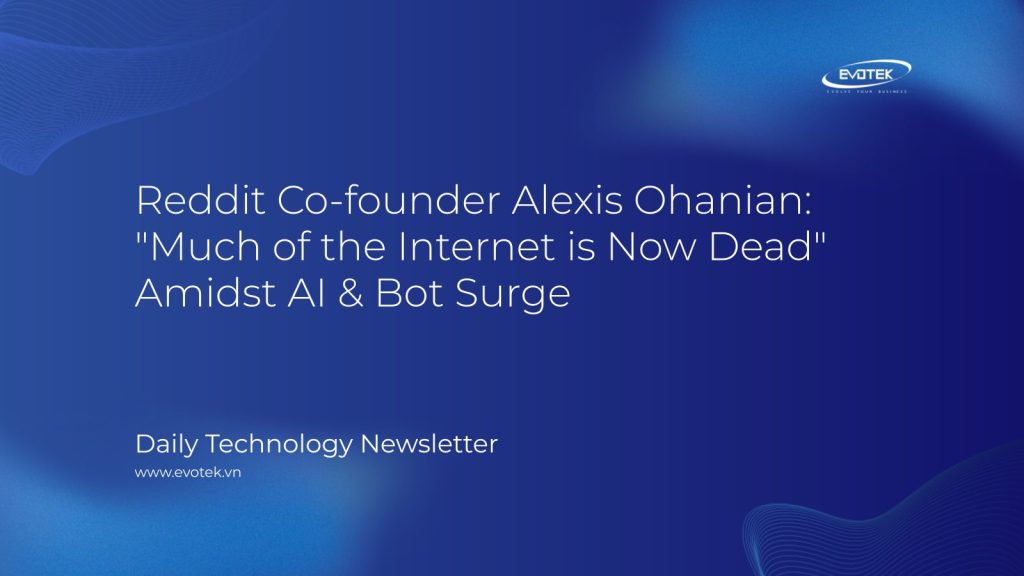Reddit co-founder Alexis Ohanian has issued a stark warning about the current state of the internet, declaring that a significant portion of it is now “dead.” Speaking on a recent episode of TBPN, Ohanian attributed this digital decline to the overwhelming proliferation of “botted” or “quasi-AI” content, leading to a less human, more automated online experience.
Ohanian, a visionary in the social media landscape, expressed profound frustration with how the internet, once a vibrant hub for human connection, has become increasingly “inhuman.” He specifically highlighted examples like “LinkedIn slop” as evidence of pervasive automation impacting authentic interactions.
The “Dead Internet Theory” Gains Traction
His observations resonate strongly with the “dead internet theory,” an increasingly discussed concept asserting that automated bot activity now outstrips genuine human interaction across the web. This theory suggests a future where digital content is predominantly machine-generated rather than created by people.
The sentiment is not unique to Ohanian. Just last month, OpenAI CEO Sam Altman also weighed in on the discussion, posting on X (formerly Twitter) that while he “never took the dead internet theory that seriously,” he is now observing “a lot of LLM-run twitter accounts,” acknowledging the growing presence of AI in online discourse.
A Call for “Verifiably Human” Social Media
To combat this digital entropy, Ohanian envisions a future where social media platforms prioritize authentic human engagement. “I think we’ll see a next generation of social media emerge that’s verifiably human,” he stated. He emphasized the critical need for “live viewers and live content,” stressing that holding attention in the modern digital age requires clear “proof of life.”
Currently, Ohanian points to the boom in group chats—such as private text threads, Signal, and Discord—as the closest existing models for genuine human-to-human connection. Many users are opting for these private forums over public platforms to share thoughts and engage in more meaningful conversations. This trend suggests a widespread desire for more authentic online interactions away from the noise of bots and AI-generated content.
However, Ohanian also cautioned that even these private digital spaces are not entirely immune, with some users already employing AI tools to generate and edit their messages. Despite this, he still views group chats as a “golden standard” for current human interaction, though he recognizes they are not “novel tech.”
Ultimately, Ohanian stressed the urgent need for a “next iteration” of social platforms that can deliver truly authentic and reliable information, moving beyond the limitations of current group chat functionalities. His insights serve as a critical reminder for the tech industry to innovate towards preserving and enhancing genuine human connection in an increasingly AI-driven digital world.

 日本語
日本語 한국어
한국어 Tiếng Việt
Tiếng Việt 简体中文
简体中文